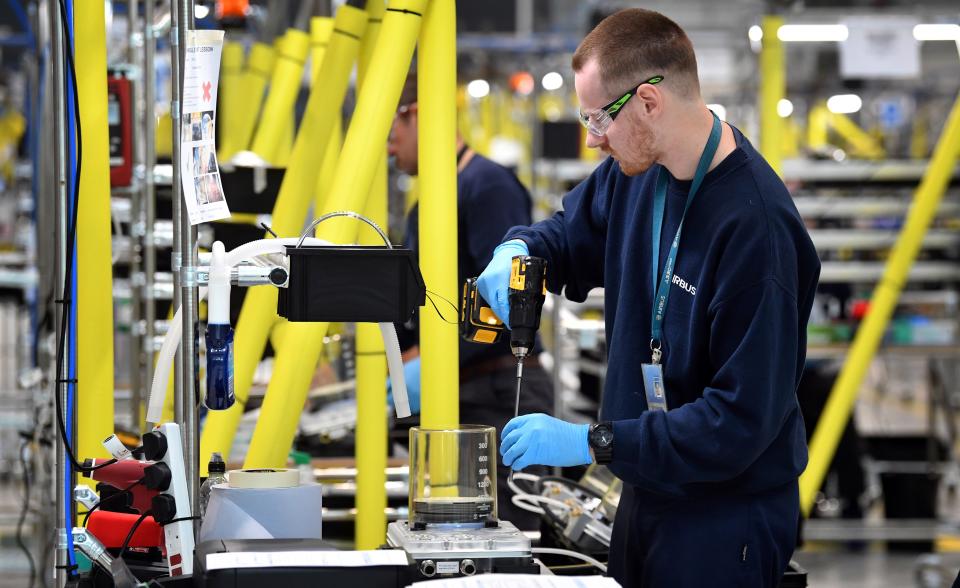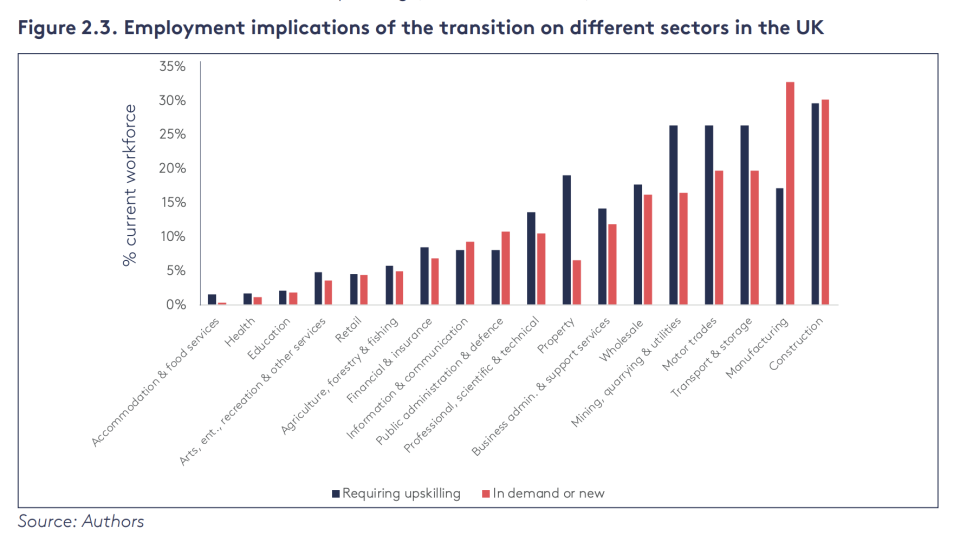3 million jobs could be at risk in shift to 'green' economy

Three million jobs could be “vulnerable” as a result of the push to make the UK economy more environmentally friendly, according to a new report.
A new 46-page report from the London School of Economics’ Grantham Institute and the University of Leeds, published on Tuesday, estimates that six million jobs in the UK will be affected by a move towards a green economy.
An estimated three million people will see growing demand for their skills and so will “flourish”, according to the new “financing climate action with positive social impact” report.
Read more: £25bn green energy plan that could save Brits £20 a year on bills
However, another three million risk being left behind as their skills become less relevant in the new economy.
The most impacted industries include construction and manufacturing. However, the hardest hit are likely to be the motoring and transport industries, which will see fewer new roles created than those disrupted by the transition according to the report’s authors.

The government last year committed to becoming a net carbon zero economy by 2050, an ambitious target that will require big changed to the economy.
The LSE and Leeds report calls on policymakers and financiers to commit to a “just transition” to the new economy, which would mean ensuring workers and living standards are protected.
“Among these particular consideration needs to be paid to people who are already disadvantaged,” the reports author’s write. “In addition, climate action will need to respond fully to gender, class and racial inequalities.”
Read more: Barclays caves to investor pressure and pledges to go carbon neutral
The report was produced in partnership with UK Finance, the lobby group for banks and finance firms, and contains recommendations for how banks can adopt the idea of a “just transition” in their own climate policies. These include creating a clear “just transition” strategy with board level buy-in and regular reports on progress.
Banks are also encouraged to ensure local financing needs continue to be met, to ensure towns and cities in parts of the country are not left behind.
Bob Wigley, chair of UK Finance, said in a statement: “Achieving the UK’s net-zero carbon target by 2050 is a difficult but critical target that requires coordinated action across industries.
“This important report from the Grantham Institute sets out clear steps for how the banking and finance industry can play a central role in delivering this goal through a just transition and we commit to acting upon its recommendations.”
Barclays (BARC.L) chief executive Jes Staley said in a statement responding to the report: “With thoughtful strategy and partnership, the decarbonisation of the economy can go hand in hand with building a thriving, resilient future for all.”
The chief executives of Natwest (RBS.L) and Lloyds Bank (LLOY.L) also publicly committed to adopt the principles of “just transition” in response to the report.
Last week chancellor Rishi Sunak pledged to create a “green recovery” in response to the COVID-19 economic recovery, announcing £3bn to help make Britain’s buildings more environmentally friendly.

 Yahoo Finance
Yahoo Finance 